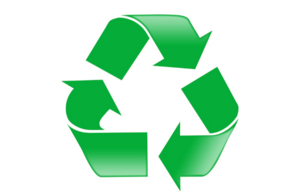New programme to drive better reuse of resources and increase recycling
Wide-ranging projects across seven key sectors of the economy to boost better design and reuse of resources whilst creating jobs and growing the economy

New plans setting out the government’s long-term aim to use fewer new resources, drive up the repair and reuse of existing materials, and increase recycling were announced by Environment Minister Rebecca Pow today (28 July).
The programme, called ‘Maximising Resources, Minimising Waste’ brings together a range of measures backed by government funding which will help to keep products and materials in circulation for as long as possible and at their highest value, including through increasing reuse, repair and remanufacture, helping to grow the economy and boost employment.
The plans include scrapping fees for households to have bulky domestic furniture collected from their homes by retailers by 2025 – saving people money and making it easier for them to recycle furniture so it can be reused, and also helping prevent fly tipping.
Examples of actions also include:
- Developing policy options to tackle fast fashion - keeping textiles out of landfill and in circulation for longer through reuse and recycling;
- Making sure vapes are properly disposed of, by consulting the public on changes to the waste electricals regulations, helping make sure the vape industry pay and strengthening take-back requirements for retailers and online sellers.
- Launching proposals on reforming the batteries regulations 2023, to mitigate the environmental impact of vehicle batteries while also keeping Britain at the forefront of the electric vehicle revolution.
Environment Minister Rebecca Pow said:
We mean business when it comes to preventing waste. We’re targeting the sectors responsible for the biggest impacts on the environment, and working with business to take the right steps for better use of our precious resources.
Today’s announcement sets out a long-term vision to improve our use of resources and protect the environment.
Harriet Lamb, WRAP CEO, said:
Nearly half of all greenhouse gases come from our own ‘consumption’ - what you and I do every day, how we shop and what we buy. Tackling these emissions from food to clothes, packaging to electronics and more is imperative if we’re to have any chance of limiting the crisis of our changing climate.
Increasing repair and reuse is key to supporting the move towards more circular living which many people and community groups are embracing and WRAP welcomes more support for such initiatives.
The government pledged to publish this programme in the comprehensive Environmental Improvement Plan earlier this year – and it will play a crucial role in achieving our goals of reusing materials as much as possible, and minimising their impact on the environment.
The programme sets out government’s intentions on waste prevention in:
- three cross-cutting areas: designing out waste, systems and services, and data and information
- across seven key sectors: construction, textiles, furniture, electronics, food, road vehicles, and plastics/packaging.
The approach will be informed by the rigorous analysis into resources and waste which we have been carrying out over previous years. For instance, textiles has been identified as a priority waste stream given the significant quantities of waste produced and its impact on Net Zero goals – which is why we are bringing forward actions such as consulting on collections of textile waste from businesses, and continuing to support voluntary actions taken by industry through Textiles 2030.
The government remains committed to delivering on its commitments to eliminating avoidable waste by 2050 and recycle 65% of municipal waste by 2035. Most recent statistics show 9.5 million tonnes of food and drink, after the farm gate, are wasted annually in the UK. This is worth around £19 billion.
The programme published today builds on other measures to tackle waste and polluting plastics, including the tax on plastic packaging which does not meet a minimum threshold of at least 30% recycled content, which came into force last April, and the upcoming bans on single-use plastic items, including cutlery and plates.
Meanwhile our single-use plastic carrier charge has successfully cut usage by more than 97% in the main supermarkets.